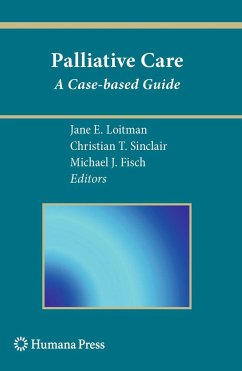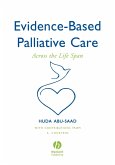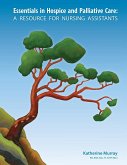A clinical case-based handbook has a role in general clinicians' practice of caring for patients with serious or life-limiting illness. The explosion of the field of Hospice and Palliative Medicine impacts all physicians and healthcare providers. Fellowship trained s- cialists graduate in greater numbers annually. These and more seasoned specialists are now certified by the American Board of Medical Specialties as subspecialists. Research in this field is expanding in scope and quantity, and peer reviewed journals devoted to this work are multiplying. Moreover, peer reviewed journals in primary care and other subspecialties of medicine regularly include papers that focus on end-of-life care, quality of life issues, and symptom management. Overall then, access to clinical information necessary to care for patients with life-limiting illness is not only essential, but also increasingly available. This case-based clinical book aims to help with the actual practice of caring for patients with life-limiting illness. Numerous texts and journals exist to provide the data to inform care, yet there remains a need to find practical points and information about the practical application of the principles of palliative care. Thus, we hope that the cases, key points, and practical tips will help health care providers who are not experts already in palliative care in the care of patients with serious illness and challenging problems. Some chapters follow one patient through the course of an illness to highlight the applicability of palliative care throughout the disease process.
From the reviews:
"Hardly any comprehensive geriatrician finds himself completely comfortable in dealing with an incurable malady and dealing with its sufferer's questions as well as in comforting expected survivors; but that therapist can find substantial help in this tiny, easy-to-read discussion of cases involving all of those problems. ... The presentation is clearly well thought-out with the highlights clearly emphasized. ... Crucial skills made available by the contributors can help the therapist become truly comprehensive." (William H. Wehrmacher, Journal of Geriatric Cardiology, June, 2011)
"Hardly any comprehensive geriatrician finds himself completely comfortable in dealing with an incurable malady and dealing with its sufferer's questions as well as in comforting expected survivors; but that therapist can find substantial help in this tiny, easy-to-read discussion of cases involving all of those problems. ... The presentation is clearly well thought-out with the highlights clearly emphasized. ... Crucial skills made available by the contributors can help the therapist become truly comprehensive." (William H. Wehrmacher, Journal of Geriatric Cardiology, June, 2011)








